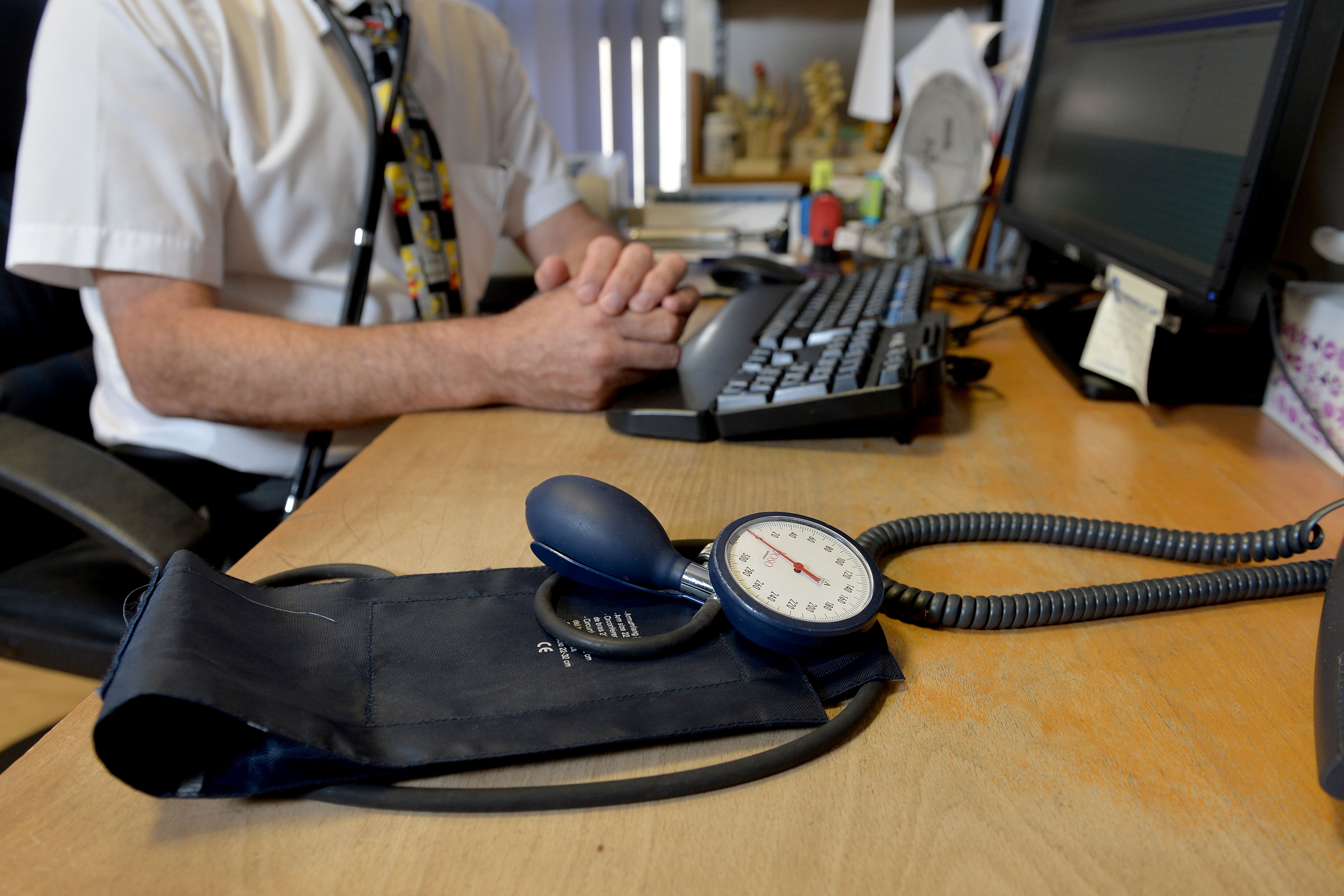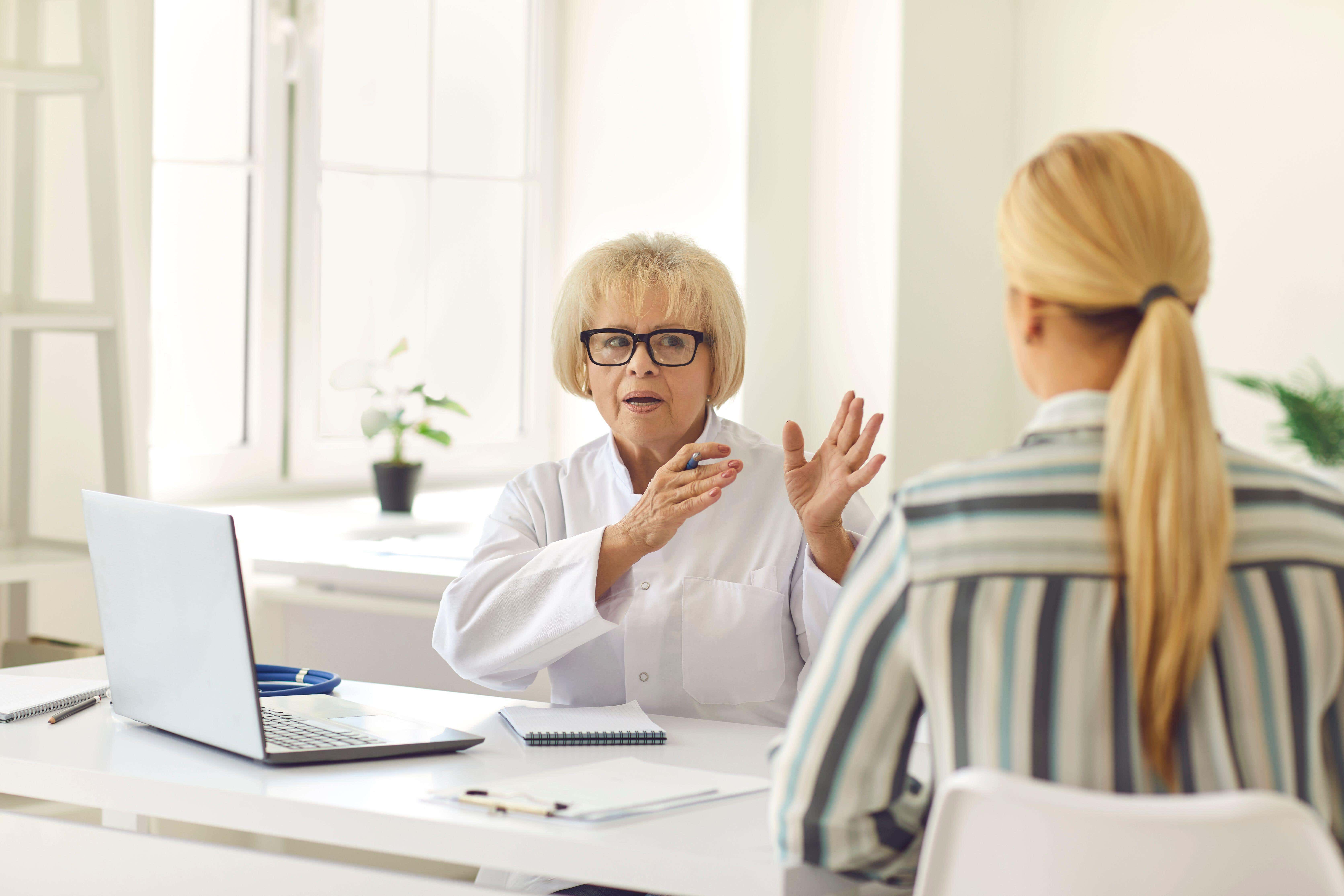Why and how you should ask your GP embarrassing questions
Patients can feel embarrassed to talk about any intimate health issues

Your support helps us to tell the story
From reproductive rights to climate change to Big Tech, The Independent is on the ground when the story is developing. Whether it's investigating the financials of Elon Musk's pro-Trump PAC or producing our latest documentary, 'The A Word', which shines a light on the American women fighting for reproductive rights, we know how important it is to parse out the facts from the messaging.
At such a critical moment in US history, we need reporters on the ground. Your donation allows us to keep sending journalists to speak to both sides of the story.
The Independent is trusted by Americans across the entire political spectrum. And unlike many other quality news outlets, we choose not to lock Americans out of our reporting and analysis with paywalls. We believe quality journalism should be available to everyone, paid for by those who can afford it.
Your support makes all the difference.It’s always a good idea to see your GP if you have any concerns around your health.
That means issues can be seen to as early as possible, potentially catching anything more serious before it progresses.
But some intimate health concerns are a bit more awkward to talk about – you might not want to speak to your GP about it at all, and put off the visit.
Health experts share how to best navigate what could quickly become an awkward moment during a consultation.
What do you find patients the most embarrassed to talk about?
According to Dr Nisa Aslam, a GP and advisor to Effercitrate Tablets, providing relief to cystitis symptoms, patients can feel embarrassed to talk about any intimate health issues.
“[This can include] sexual and reproductive issues including vaginal thrush and for men difficulties in getting and maintaining an erection. However, health issues related to the bowels such as constipation and diarrhoea to problems associated with our urinary tract like cystitis, are equally health areas that patients are embarrassed to talk about,” Aslam said.
How should patients ask their GP embarrassing questions?
GPs don’t have long consultation times, so it’s important to get to the issue immediately – to get the most out of your visit.
“Don’t worry if you haven’t got medical words to express yourself. Say something like, ‘I have pain on passing urine’, or ‘I have pain when I pee’, or ‘I am having some problems during sex’, or ‘I have pain when I try to have a poo’,” said Aslam.
Phil Day, a superintendent pharmacist at Pharmacy2U, agreed and added: “Write it down in advance. It’s less likely that you’ll get a bit flustered, go off on a different track or start thinking more about the emotional reaction rather than the actual stance.
“The worst thing would be to leave the consultation room and think afterwards, ‘Oh, I wish I said that’, or ‘I forgot to mention this’ – it might have been key.”

How can GPs help with this?
To help a patient who may be embarrassed, Aslam starts with simple questions like, ‘How can I help you today?’
“When the patients seem [ill] at ease, I remind them that everything they say will be confidential – I see a huge range of health issues and will likely have come across their issue before,” she said.
“In terms of embarrassing treatments, I use simple language. So, for cystitis I’d talk about pain passing water, and how often they pass water. Treatments are only effective if used properly so patients need to understand this, no matter how embarrassed they are.
“So, if a woman needs to tackle cystitis in its early stages and antibiotics are not appropriate, I recommend effercitrate tablets which are available over the counter. I tell them it’s a tablet containing potassium citrate and citric acid which they have to dissolve in a glass of water.
“I explain that the ingredients make the urine more alkaline, helping soothe the bladder and lining of the urinary tract (or waterworks) improving the pain and discomfort of cystitis.”
How might seeing the same GP help with this?
Communication skills are a key part of a GP toolbox, so building long-term relationships, trust and rapport is important.
“I think the continuity of care angle is important too,” said Day. “It gives you a better understanding of the patient’s medical history and needs. You’ve built up that rapport and trust more quickly and can make better use of that limited consultation time.
“If a long-term patient person seems more worried than usual or their mood and mannerisms are off, that would be something that can be picked up on and help a GP with a diagnosis.
“Pharmacists and doctors do this day in and day out, so they are quite desensitised. You may have just one embarrassing question a year, but they hear these things every day. We are specialists at putting you at ease.”